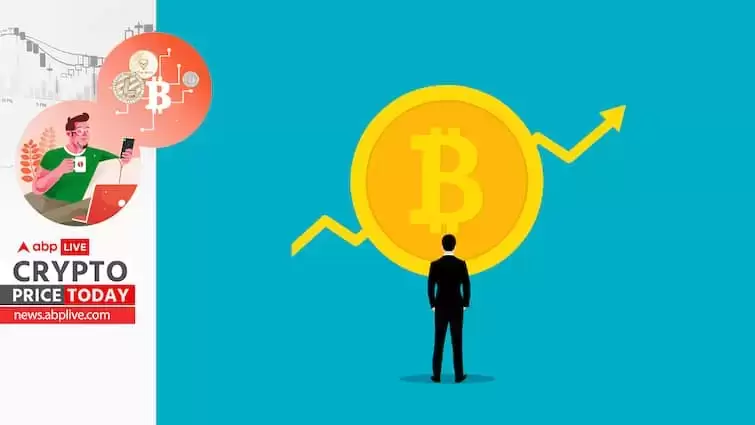 |
|
 |
|
 |
|
 |
|
 |
|
 |
|
 |
|
 |
|
 |
|
 |
|
 |
|
 |
|
 |
|
 |
|
 |
|
现在想象一下,在中央银行的走廊上进行的谈话回荡,那里的赌注是一个缺少本世纪最不对称的财务机会之一的国家。

If you're reading this, chances are you've encountered the familiar refrain at a dinner party: "Oh, if only we had bought Bitcoin ten years ago." Now imagine that conversation echoing in the corridors of a central bank, with the implications of a nation missing one of the most asymmetric financial opportunities of the century.
如果您正在阅读这篇文章,那么您很可能会在晚宴上遇到熟悉的避免:“哦,如果我们十年前我们才购买了比特币。”现在想象一下,在中央银行的走廊上回荡的谈话,一个国家缺少本世纪最不对称的财务机会之一的含义。
For emerging economies — nations like India, Brazil, Indonesia, South Africa, Nigeria, Thailand, or Vietnam — strategic exposure to cryptocurrencies is crucial for future economic resilience. Together, they represent over 40% of the global population and about 25% of global GDP. However, they remain susceptible to external economic shocks, including currency fluctuations, trade disruptions, and more.
对于新兴经济体 - 印度,巴西,印度尼西亚,南非,尼日利亚,泰国或越南的国家 - 战略性暴露于加密货币对未来的经济弹性至关重要。它们共同占全球人口的40%以上,约占全球GDP的25%。但是,它们仍然容易受到外部经济冲击的影响,包括货币波动,贸易中断等。
Today, their sovereign reserves are heavily concentrated in traditional assets like gold and foreign exchange. But those won't provide sufficient hedges in a rapidly digitizing world.
如今,他们的主权储量重点集中在黄金和外汇等传统资产上。但是这些不会在快速数字化的世界中提供足够的对冲。
Cryptocurrencies aren't an experiment anymore. While Bitcoin is the most widely adopted, making it the primary example in this discussion, the broader argument applies to cryptocurrencies as a whole. The Bitcoin network has been operational for over 99.98% of the time since its inception in 2009. They've survived wars, regulatory crackdowns, and multiple financial crises. Over the last decade, bitcoin has appreciated nearly 200X, far outpacing tech giants like NVIDIA or Apple.
加密货币不再是实验。虽然比特币是最广泛的采用,这是本讨论中的主要例子,但更广泛的论点适用于整个加密货币。自2009年成立以来,比特币网络已有99.98%的时间运作。他们在战争,监管镇压和多种金融危机中幸存下来。在过去的十年中,比特币赞赏近200倍,超过了Nvidia或Apple等技术巨头。
The crypto space, it's no secret, has also faced scams, rug pulls, and bad actors. But that's common in virtually any financial system—think of early stock markets or banking. That's why smart regulation is critical. Countries like Singapore, Japan, and Switzerland have already struck a balance between consumer protection and innovation, offering models for others. But these risks don't negate crypto's core appeal—they demand careful governance.
加密货币空间也不是秘密,也面临着骗局,地毯拉力和坏演员。但这在几乎任何金融体系中都是常见的 - 早期股票市场或银行业务。这就是为什么智能法规至关重要的原因。新加坡,日本和瑞士等国家已经在消费者保护和创新之间取得了平衡,为他人提供了模型。但是,这些风险不会否定加密货币的核心吸引力 - 他们需要仔细的治理。
Diversification is key. Ask any central banker, fund manager, or financial advisor: you don't put all your eggs in one basket, and you certainly don't bet the future of an economy on a single asset class. In a world that's rapidly digitizing, ignoring digital assets like cryptocurrencies is a mistake. These assets tend to have little correlation with how other traditional assets perform, making bitcoin a strong hedge against economic turbulence.
多样化是关键。询问任何中央银行,基金经理或财务顾问:您不会将所有鸡蛋放在一个篮子里,并且您当然不会在单一资产类别上押注经济的未来。在一个快速数字化的世界中,忽略像加密货币这样的数字资产是一个错误。这些资产往往与其他传统资产的表现几乎没有相关性,这使得比特币成为反对经济动荡的强烈树篱。
We're already seeing entire publicly listed companies built around bitcoin as a core asset. Take Michael Saylor's Strategy, which started as a software firm and now holds over 506,137 BTC (approximately $42 billion as of writing). Countries like El Salvador have adopted Bitcoin as legal tender. Vietnam, India, and Thailand rank among the top 10 countries globally for cryptocurrency adoption already. EAEs must follow this shift or fall behind.
我们已经看到整个围绕比特币建立的公开上市公司是核心资产。以迈克尔·塞勒(Michael Saylor)的策略为例,该策略最初是一家软件公司,现在持有506,137 BTC(截至写作,约为420亿美元)。像萨尔瓦多这样的国家已将比特币作为法定货币。越南,印度和泰国已经在全球采用加密货币方面排名全球十大国家。伊斯必须跟随这种转变或落后。
Bitcoin isn't the new digital gold—it serves a very different role. In many cultures, more so in mine, we Indians love our gold. We hoard it, gift it, and trust it as a store of value. Central banks across the world have been buying gold at a record pace in recent years. But gold wasn't always the safe bet we think it is today—back in the 1980s, its price crashed by 60% before bouncing back.
比特币不是新的数字黄金,它发挥了截然不同的作用。在许多文化中,在我的更多文化中,我们印第安人喜欢我们的黄金。我们ho积它,赠予它并相信它是价值存储。近年来,全球中央银行一直以创纪录的速度购买黄金。但是,黄金并不总是我们认为今天的安全赌注 - 在1980年代的返还,其价格跌倒了60%,然后反弹。
Bitcoin brings new utility: it can be transferred anywhere in the world in minutes, divided into microscopic fractions, and secured with cryptographic protocols. Gold and Bitcoin share fundamental traits—they're scarce, resilient, and hedge against uncertainty—but gold preserves value traditionally, while bitcoin expands possibilities digitally. They don't replace each other; they work together.
比特币带来了新的实用程序:可以在几分钟内将其转移到世界任何地方,分为微观分数,并使用加密协议固定。黄金和比特币具有基本特征(它们稀缺,有弹性和防树篱,反对不确定性),但黄金传统上保留了价值,而比特币则以数字方式扩展了可能性。他们不会互相替代;他们一起工作。
Critics often dismiss crypto as mere speculation, but its utility is real. Major companies like Microsoft and Starbucks now accept bitcoin and stablecoins for transactions. U.S. bitcoin ETFs have attracted over $12 billion in institutional inflows within months. Crypto enables faster, cheaper remittances, cutting global fees from 6.4% to under 1%, saving billions for developing economies. With over $100 billion locked in DeFi protocols, it's clear that the future of finance is already being built on blockchain.
批评者通常将加密货币视为仅仅是猜测,但其效用是真实的。现在,微软和星巴克等主要公司接受比特币和Stablecoins进行交易。美国比特币ETF在几个月内吸引了超过120亿美元的机构流入。加密货币可以更快,更便宜,将全球费用从6.4%降低到1%以下,为发展中的经济体节省了数十亿美元。凭借超过1000亿美元的规定,很明显,财务的未来已经建立在区块链上。
Emerging economies should take a strategic, forward-looking step toward economic resilience. A 1-2% allocation in digital assets is smart, not a gamble. Track its performance, take cues from early movers like the U.S., El Salvador, and Strategy, and refine the approach as you go. Encourage financial institutions to experiment with crypto-backed financial instruments in a limited way. Proactive regulatory frameworks are vital to foster innovation while ensuring stability.
新兴经济体应朝着经济韧性迈出战略性,前瞻性的一步。数字资产的1-2%分配是聪明的,而不是赌博。跟踪其性能,从美国,萨尔瓦多等早期推动者和策略中获取线索,并在您走时完善方法。鼓励金融机构以有限的方式尝试使用加密支持的金融工具。积极的监管框架对于促进创新至关重要,同时确保稳定。
Countries must position themselves for the future. Holding digital assets reduces reliance on external financial systems and insulates them from geopolitical and monetary shifts. We've seen this playbook before—these countries weren't the first to embrace digital payments, yet they built world-class infrastructure like India's UPI, Brazil's PIX, and Nigeria's NIBSS. The same leadership is possible in crypto reserves. With the global crypto market nearing $3 trillion
国家必须为未来定位自己。持有数字资产可以减少对外部金融系统的依赖,并使他们摆脱地缘政治和货币转变。我们之前曾看过这本剧本 - 这些国家不是第一个接受数字付款的国家,但他们建立了世界一流的基础设施,例如印度的UPI,巴西的Pix和尼日利亚的努力。加密储备中也可以使用同样的领导。随着全球加密市场接近3万亿美元
免责声明:info@kdj.com
所提供的信息并非交易建议。根据本文提供的信息进行的任何投资,kdj.com不承担任何责任。加密货币具有高波动性,强烈建议您深入研究后,谨慎投资!
如您认为本网站上使用的内容侵犯了您的版权,请立即联系我们(info@kdj.com),我们将及时删除。
-

-

-

-

- 避行状态的战斗:黄金与比特币
- 2025-04-02 14:40:12
- 随着新闻造成全市崩溃的原因,比特币也下降了6%,低至81,488美元。
-

-

-

- Vaulta银行咨询委员会触发EOS价格集会至2个月高
- 2025-04-02 14:30:12
- EOS网络已公布了Vaulta银行咨询委员会,此举使EOS价格提高了16%
-

- XRP价格预测:XRP是否会从此关键支持级别中反弹或分解?
- 2025-04-02 14:30:12
- 最近几周,加密货币市场一直高度波动,在更广泛的宏观经济不确定性的情况下,Altcoins经历了重大波动。
-

- 比特币不仅是价格过山车。这也是一个活的生态系统
- 2025-04-02 14:25:12
- 人权基金会(HRF)发布了1000000000 satoshis,以支持比特币项目。



























































